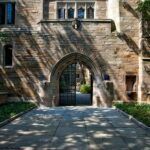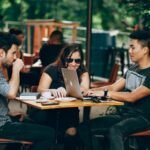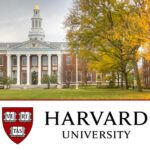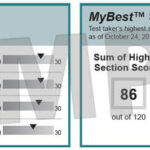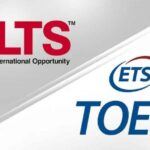所有申请人必须在申请表中提交个人陈述。这是你向招生委员会展示你自己、你的背景、你的经历和你的想法的机会。你可能想写关于你的知识兴趣、你的职业目标、你的成就、你的家庭背景或你对社区的参与。点击这里查看更多范文。
英文原文:
Once in a while, I am approached by past research associates who heard that I “got out,” as several of them put it, and who want to know how I handled the switch. Some of them have no idea that people with science backgrounds have options other than research and teaching, and many are discouraged by the thought that they would have to leave their beloved science in other to engage in those activities. Several of them have called me from home to ask these questions, for fear of being overheard at the laboratory.
The first thing I tell them is that there is far more to science than the “bench”. I myself entered the science field as an undergraduate when I chose to study veterinary microbial genetics. I worked in the laboratory of Dr. William Sischo, an epidemiologist who specialized in number-crunching but who needed technical assistance with field sampling and laboratory work to generate the data. Dr. Sischo instilled in me a strong desire to learn and experiment in genetics. I was fascinated by the many ways genetics can be used to help understand how or why certain biological functions occur, and I wondered how I could use my knowledge of genetics to benefit society.
After I obtained my bachelor of science degree, I went on to graduate school earning a master of science degree part-time while working full-time jobs in a couple of well-establish research institutions. I enjoyed both graduate school and working in the laboratory. I also learned the “correct” career path — an academic position at a respectable research university — was what we were supposed to want out of life. More specifically, academic laboratories were acceptable, but working in industry, even to do research, was generally looked upon as “selling out”. I believe this attitude has relaxed somewhat since then, since grants and jobs have become harder to secure and tenured positions lack the security they once possessed.
It was during my graduate studies that I began to question my goals and the assumptions they were based on. I was becoming increasingly unhappy with the direction my career was heading, and I began to question my abilities and motivation. Finally, when I heard myself mutter out loud “I don’t want to do bench work forever,” I sat up and took notice. I decided that in spite of my training, and even though I still loved science, research was not right for me.
I wanted a career, or at least a job for starters, that valued my graduate degree and training, and that was a better fit for my skills and future ambitions. I decided I would do best with a job that was externally driven either by deadlines or by the needs of others; in addition, I wanted to talk, write, and/or evaluate science as a whole rather than focus on one particular aspect of a research project.
As a molecular geneticist, I had occasionally interacted with the patent department at SmithKline Beecham Pharmaceuticals in support of my supervisor’s patent applications. They worked on a variety of intellectual property issues in a number of scientific disciplines that were of interest to the company. I realized then that I could make very good use of my science background as a patent attorney.
Earlier this year, I accepted an offer to work as a patent agent in the Corporate Intellectual Properties Department at SmithKline Beecham. The job involves writing and prosecuting patent applications, which in turn requires broad knowledge of both science and law. I soon realized that, in order to become an effective patent practitioner, I must become intimately acquainted with U.S. patent law. Because SmithKline Beecham is an international corporation, I have also learned a great deal about international patent law so that I can assist in foreign prosecution of SmithKline Beecham’s patents. When I first started the job, it occurred to me that my learning curve was a cliff with an overhang, and I was at the bottom looking up.
I was extremely lucky to find a job almost immediately following graduation last January. However, this opportunity was not trouble-free, there were additional risks to consider at the time I made the decision to change. Our company was in the middle of negotiations to merge with another international pharmaceutical company, GlaxoWellcome Pharmaceuticals. As details of the merger were released, we were informed that the majority of the money saved in the merger was going to be invested back into research and discovery. In other words, because of the patent applications that I draft and prosecute, my job as a patent agent will play an essential role in the inventive process in the new company. Daily interaction with inventors keeps me up-to-date with cutting-edge technology in the biotechnology field. As my work progressed, I knew I had made the right decision, and I have never looked back.
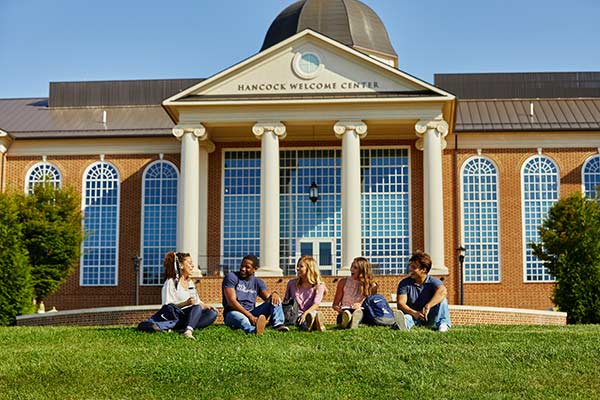
In October, I took the complex patent bar examination. My determination to take the examination straight away was to become a registered patent agent before entering law school, so that my academic studies will not suffer while I attempt to balance a career and my education. I am now hoping to complete the career transition over the next four years by attending law school at Villanova University and becoming a patent attorney. A few weeks ago, I was offered the opportunity to move to our new research facility in North Carolina, but declined the offer in hopes of attending Villanova’s law program, which is well respected among the various pharmaceutical companies on the East Coast for its intellectual property education.
Intellectual property is a crucial asset to our company, and I take generating and protecting these assets very seriously. A considerable part of my job involves “translating” science for attorneys and patent law for scientists. I also have to be able to understand a new result quickly enough to grasp what the specific invention is and ask further questions which allow me to distill the invention down to its bare essence. Organization is also key — this is something I learned as a matter of self-preservation, since this is a deadline-driven, and sometimes crisis-driven, job.
I now believe that my job as a patent agent is not a break with the past; rather, it is an exciting, alternative continuation of my career as a scientist. The patent applications that I draft and prosecute make me a critical part of the inventive process at SmithKline Beecham. Furthermore, my interactions with inventors on a daily basis keep me up to date with the latest technology. Not so long ago, when I began research as an undergraduate, I wondered what impact I would have on the development of new scientific knowledge. Through my work as a patent agent, I know that I am a key participant in the promotion of scientific progress.
I still run into acquaintances from my research days who ask me why I “left science”. I am quick to set them straight. I may not get my hands wet, but I use far more of my education and training than I ever did at the bench, and I am very much still in science. I firmly believe my experiences in science and patent prosecution will allow me to be a creative and contributing member of Villanova University, both as a student and as a future attorney representing achievement.
中文译文:
过去的研究人员偶尔会找到我,他们听说我“离开了”,正如他们中的一些人所说的那样,他们想知道我是如何处理这种转变的。他们中的一些人不知道具有科学背景的人除了研究和教学之外还有其他选择,许多人认为他们必须将自己心爱的科学留在其他领域才能从事这些活动,这让他们感到气馁。他们中有几个人从家里打电话给我问这些问题,生怕在实验室被偷听到。
我告诉他们的第一件事是,科学远不止“板凳”。当我选择学习兽医微生物遗传学时,我自己作为一名本科生进入了科学领域。我在 William Sischo 博士的实验室工作,他是一位专门研究数字运算的流行病学家,但在现场采样和实验室工作方面需要技术援助来生成数据。Sischo 博士向我灌输了学习和试验遗传学的强烈愿望。我对遗传学可以用来帮助理解某些生物学功能如何或为什么发生的许多方式着迷,我想知道如何利用我的遗传学知识造福社会。
获得理学学士学位后,我继续攻读研究生院,兼职获得理学硕士学位,同时在几家知名研究机构从事全职工作。我喜欢读研究生和在实验室工作。我还了解到“正确”的职业道路——在一所受人尊敬的研究型大学的学术职位——是我们应该从生活中得到的。更具体地说,学术实验室是可以接受的,但在工业界工作,甚至是做研究,通常被视为“出卖”。我相信从那以后这种态度有所放松,因为拨款和工作变得更难获得,而终身职位也缺乏他们曾经拥有的安全感。
正是在我的研究生学习期间,我开始质疑我的目标和它们所基于的假设。我对自己的职业发展方向越来越不满,开始质疑自己的能力和动力。最后,当我听到自己大声说“我不想永远做板凳工作”时,我坐起来注意了。我决定,尽管我接受了培训,尽管我仍然热爱科学,但研究并不适合我。
我想要一份职业,或者至少是一份适合初学者的工作,它重视我的研究生学位和培训,并且更适合我的技能和未来的抱负。我决定我会做最好的工作,要么是由最后期限或其他人的需求驱动的;此外,我想从整体上谈论、写作和/或评估科学,而不是专注于研究项目的某个特定方面。
作为一名分子遗传学家,我偶尔会与 SmithKline Beecham Pharmaceuticals 的专利部门进行交流,以支持我的主管的专利申请。他们致力于公司感兴趣的多个科学学科的各种知识产权问题。那时我意识到我可以很好地利用我作为专利代理人的科学背景。
今年早些时候,我接受了一份在 SmithKline Beecham 公司知识产权部门担任专利代理人的工作。这项工作涉及撰写和处理专利申请,这反过来又需要广泛的科学和法律知识。我很快意识到,为了成为一名有效的专利从业者,我必须熟悉美国专利法。因为 SmithKline Beecham 是一家国际公司,我也学习了很多关于国际专利法的知识,因此我可以协助 SmithKline Beecham 的专利在国外进行诉讼。当我第一次开始工作时,我突然想到我的学习曲线是一个悬垂的悬崖,我在底部向上看。
我非常幸运,去年一月毕业后几乎立即找到了工作。然而,这个机会并非没有问题,在我做出改变的决定时还需要考虑额外的风险。我们公司正在谈判与另一家国际制药公司葛兰素威康制药合并。随着合并细节的公布,我们被告知,合并中节省的大部分资金将重新投资于研究和发现。换句话说,由于我起草和起诉的专利申请,我作为专利代理人的工作将在新公司的发明过程中发挥重要作用。与发明家的日常互动让我了解生物技术领域的前沿技术。随着我工作的进展,
十月,我参加了复杂的专利律师考试。我立志立即参加考试,是在进入法学院之前成为一名注册专利代理人,这样我的学业就不会受到影响,同时我也在努力平衡职业和教育。我现在希望通过在维拉诺瓦大学就读法学院并成为一名专利代理人来完成未来四年的职业转变。几周前,我有机会搬到我们在北卡罗来纳州的新研究机构,但拒绝了这个提议,希望能参加维拉诺瓦的法律项目,该项目因其知识产权而在东海岸的多家制药公司中备受推崇教育。
知识产权是我们公司的重要资产,我非常重视生成和保护这些资产。我工作的很大一部分涉及为律师“翻译”科学,为科学家“翻译”专利法。我还必须能够足够快地理解新结果,以掌握具体的发明是什么,并提出进一步的问题,从而使我能够将发明提炼到最本质的地方。组织也是关键——这是我从自我保护中学到的东西,因为这是一个期限驱动的工作,有时是危机驱动的工作。
我现在相信我作为专利代理人的工作并没有与过去断绝关系;相反,这是我作为科学家的职业生涯的一个令人兴奋的、另类的延续。我起草和起诉的专利申请使我成为 SmithKline Beecham 发明过程的关键部分。此外,我每天与发明家的互动让我了解最新的技术。不久前,当我作为一名本科生开始研究时,我想知道我会对新科学知识的发展产生什么影响。通过我作为专利代理人的工作,我知道我是推动科学进步的关键参与者。
我仍然遇到研究期间的熟人,他们问我为什么“离开科学”。我很快就把它们摆正了。我可能不会弄湿我的手,但我使用的教育和培训比我在板凳上所做的要多得多,而且我仍然在科学界。我坚信我在科学和专利申请方面的经验将使我成为维拉诺瓦大学的一名富有创造力和贡献的成员,无论是作为学生还是作为代表成就的未来律师。



